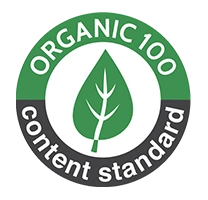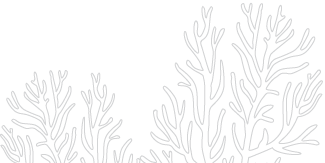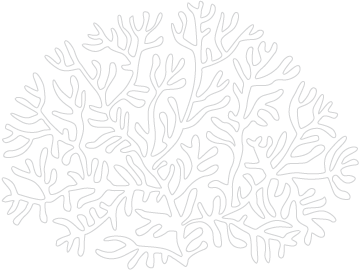At the moment, there are no entries available for display

Our promise of delivering value begins with a supply chain that is sustainable but agile and ready to meet tomorrow's challenges.






Teejay benefits from a robust value chain network, that includes numerous established suppliers who have grown alongside our operations over 25 years. We champion mutually beneficial relationships, compliance, innovation and traceability throughout our supply chain, all of which are essential for delivering sustainable, high-quality products to our global customer base. Our expanding global footprint necessitates a varied range of suppliers to ensure smooth business operations.
Engaging with Our Suppliers

As a fabric solutions provider, our primary supplier interactions within the fabric and apparel supply chain involve two key tiers. Tier 1 suppliers, forming the majority of our supplier base, are those involved in supplying or processing raw materials into intermediate products such as yarn, greige and chemicals. These constitute a significant proportion of our raw materials consumption, with further details and metrics specific to the year, available in the Environment section on page Environment Stewardship
Our supplier network management strategy focuses on building long-term business continuity and optimising sourcing, while fostering collaborative innovation and problem-solving for mutual benefit. We offer our suppliers a value proposition that includes a collaborative environment, opportunities for vertical integration and expertise development, and direct connections to leading brands and brand partners.

Furthering our commitment to continuous learning in 2024/25, we initiated several projects aimed at improving mutually beneficial supplier relationships, with a focus on open collaboration. Training and awareness sessions to optimise the chemical compliance process, were conducted. Additionally, discussions are underway regarding the procurement of an online automation tool to streamline operations collaboratively with suppliers and internal teams. We also launched monthly supply chain performance reviews, refined payment methodologies to ensure timely supplier payments and conducted ad-hoc visits to strengthen these supplier partnerships.
During the year under review, we continued to expand and diversify our supplier and partner network, onboarding 527 new suppliers from strategic locations and business segments, bringing our total registered supplier base to 2,682. By strengthening our supply chain, we gain greater agility and reliability, allowing us to respond more effectively and promptly to market fluctuations. This also boosts efficiency through alternative sourcing avenues, improved cost-effectiveness and expanded customer reach.


Proactive, risk-informed supply chain management is essential for Teejay as the fashion industry faces increasing physical risks from climate change. The global supply chain is already responding to more frequent extreme weather and climatic shifts impacting raw material production.
Acknowledging the potential for these risks to grow, Teejay is investing in mapping their impact on key raw materials, utilising internal and external expertise. We are also developing mitigation strategies to address potential raw material shortages and operational disruption. Our efforts to strengthen sustainability across the supply chain are explored in the next section.
Strengthening Supply Chain Sustainability


Teejay’s commitment to sustainable products and solutions is reflected in our use of certifications, accreditations, and international standards, which extend to the raw materials we utilise. We proudly stand as the first textile mill in Sri Lanka to have been certified under the US Trust Protocol.
- Global Recycled Standard (GRS)
- Global Organic Textile Standard (GOTS)
- Oeko-Tex Standard 100 (Oeko-Tex)
- Organic Content Standard (OCS)
- Zero Discharge of Hazardous Chemicals (ZDHC)
- Bluesign
- US Cotton Trust Protocol (USCTP)
- Re-Gen-Agri
- Better Cotton Initiative (BCI)
- Textile Genesis (Textile Genesis)
- Higg Index (Higg)
Sustainability at Teejay extends throughout our supply chain, guiding our interactions and expectations of all partners. We are committed to upholding the highest ethical and environmental standards, and we expect the same from our suppliers, ensuring compliance with the stringent requirements of leading international brands.
Our Journey Towards Circularity and Traceability
A core focus for Teejay is promoting circularity within our supply chain by collaborating with suppliers to produce and source recycled or post-consumer raw materials. Simultaneously, we work with our supply chain partners to ensure end-to-end traceability of these materials, allowing us to eliminate restricted substances and maintain ethical standards. Our traceability framework, Standard Operating Procedures (SOP), and supplier agreements are structured to guarantee compliance.
Since April 2023, comprehensive traceability documentation has been maintained for all purchases: ensuring full visibility into the origins of raw materials, which contributes to operational efficiency. Additionally, we actively engage with brands to integrate their preferred platforms, including Textile Genesis, CommonShare, General Intelligence (GI), TrusTrace, and Retraced.
Developments in 2024/25
- We launched a series of targeted initiatives to accelerate Development and Bulk lead times, enhancing our responsiveness to vendor and brand needs while reinforcing our commitment to compliance and end-to-end traceability.
- Teejay began transitioning to digital platforms for enhanced traceability and transparency.
- To ensure full traceability compliance, we have institutionalised regular supplier engagements and implemented a rigorous follow-up mechanism to drive traceability reporting.
- We are driving operational efficiency by targeting a definite time period. This approach ensures streamlined processing, timely documentation, and enhanced supply chain predictability.
The SAP report was implemented, contributing to: streamlining operations, effective tracking and management of materials and overall supply chain visibility.
Our Supplier Evaluation Process

Teejay employs a robust assessment framework for suppliers, considering sustainability-focused criteria including potential lifecycle impact of raw materials and responsible practices, alongside delivery and technical capabilities, and reputation and financial stability.
Upon identifying potential suppliers, we conduct audits and site visits to evaluate them against the aforementioned criteria. Further engagement and prospective partnerships are pursued if suppliers demonstrate the capacity to meet Teejay’s standards. We determine “Significant suppliers” based on delivery performance and product quality. Our supplier ranking system considers factors such as flexibility, lead time, compliance, innovations and developments, and brand nominations.
Our Supplier Code of Conduct (SCC) is a vital element of our due diligence and compliance procedures, with all suppliers required to endorse the SCC upon registration. It outlines: ethical business practices, social responsibility and environmental stewardship. We monitor supplier performance and verify adherence to standards through self-assessments and routine on-site audits.
In 2024/25, a supplier onboarding process was introduced, supported by revised Standard Operating Procedures (SOP) and a new ESG assessment. This updated process streamlines the onboarding of new suppliers while ensuring alignment with our sustainability goals and the maintenance of a responsible supply chain.

Teejay actively promotes the adoption of the HIGG Facility Environmental Module (FEM) amongst our suppliers. We view this as a crucial set of standards for environmental stewardship and a key driver for achieving sustainability goals across our supply chain. We work closely with our partners to raise awareness and support its implementation.
Acknowledging our collective responsibility for climate action, we are also collaborating with suppliers to phase out non-renewable energy sources and explore alternatives that contribute to the energy transition.
Another key area of engagement with suppliers is responsible chemical use, aligned with the Zero Discharge of Hazardous Chemicals (ZDHC) guidance. Additionally, we actively encourage Bluesign certification, which guarantees the removal of harmful chemicals and other substances.

The integrity of our sustainable fabric solutions in achieving certifications such as Oeko-Tex, GOTS, GRS, BCI, Re-gen-agri and Bluesign relies on the critical compliance standards maintained by our suppliers.
| OEKO – TEX Standards % |
Global Organic Textile Standard (GOTS)/Organic Content Standard (OCS) % |
Global Recycling Standard (GRS) % |
Better Cotton Initiative (BCI) % |
Bluesign % |
|
| Significant Tier 2 suppliers certified | 100 | 17 | 100 | – | – |
| Significant Tier 1 suppliers certified | 68 | 46 | 81 | 46 | – |
| Raw material certified | – | – | – | – | 81 |
Managing Environmental and Social Risks to Priority Raw Materials

| Priority Raw Material | Environmental or Social Factors Most Likely to Threaten Sourcing | Discussion of Business Risks or Opportunities | Management Strategy for Addressing Risks and Opportunities |
| Yarn Greige PFP |
|
|
|
| Dyes Chemicals Auxiliaries |
|
|
|
Digital Transformation of Our Supply Chain in 2024/25
Supply Chain Management: Resilience to disruptions increased through real-time tracking of goods, shipments, and inventory via IoT and the cloud, and improved forecasting and demand planning with AI.
Procurement Processes: Workflows were automated, supplier selection was enhanced with data analytics, and cost control and compliance were strengthened with digital contract management and auditing tools.
Collaboration with Partners: Seamless communication and document sharing were enabled via integrated platforms, supporting co-innovation while reducing delays and errors with real-time updates and centralised data.
Traceability and Transparency: End-to-end visibility across the value chain was improved via blockchain, IoT, and ERP, enhancing product traceability for quality assurance, sustainability, and compliance, thereby strengthening consumer trust and regulatory reporting.
Our Focus for 2025/26
A key focus will be on enhancing the ESG pillar to align more closely with Teejay’s overarching ESG objectives. Plans are in place to conduct thorough supplier assessments to ensure adherence to all relevant supply chain compliance standards. Furthermore, we aim to deepen our supplier relationships through a supplier relationship management tool to streamline associated processes.



